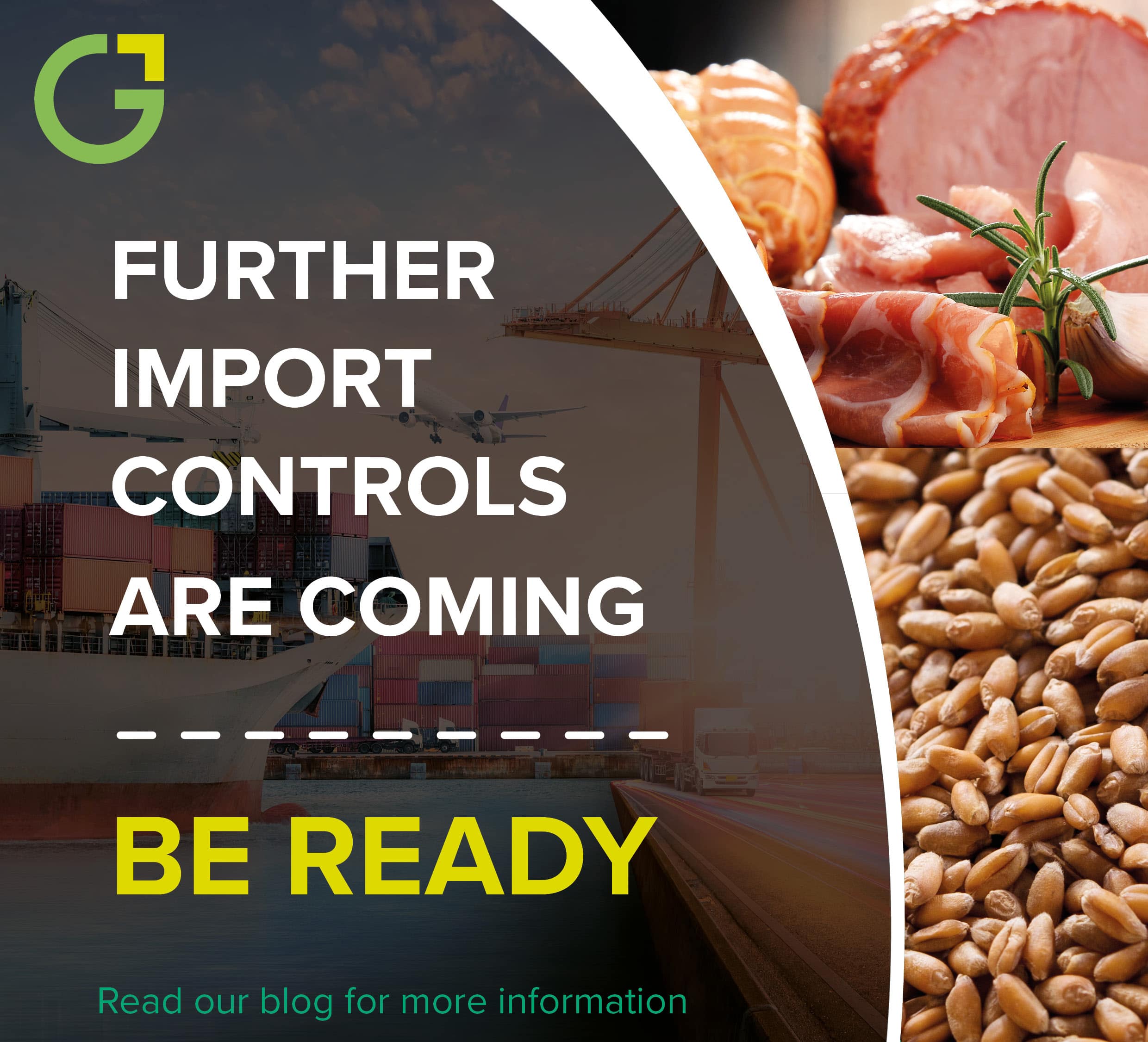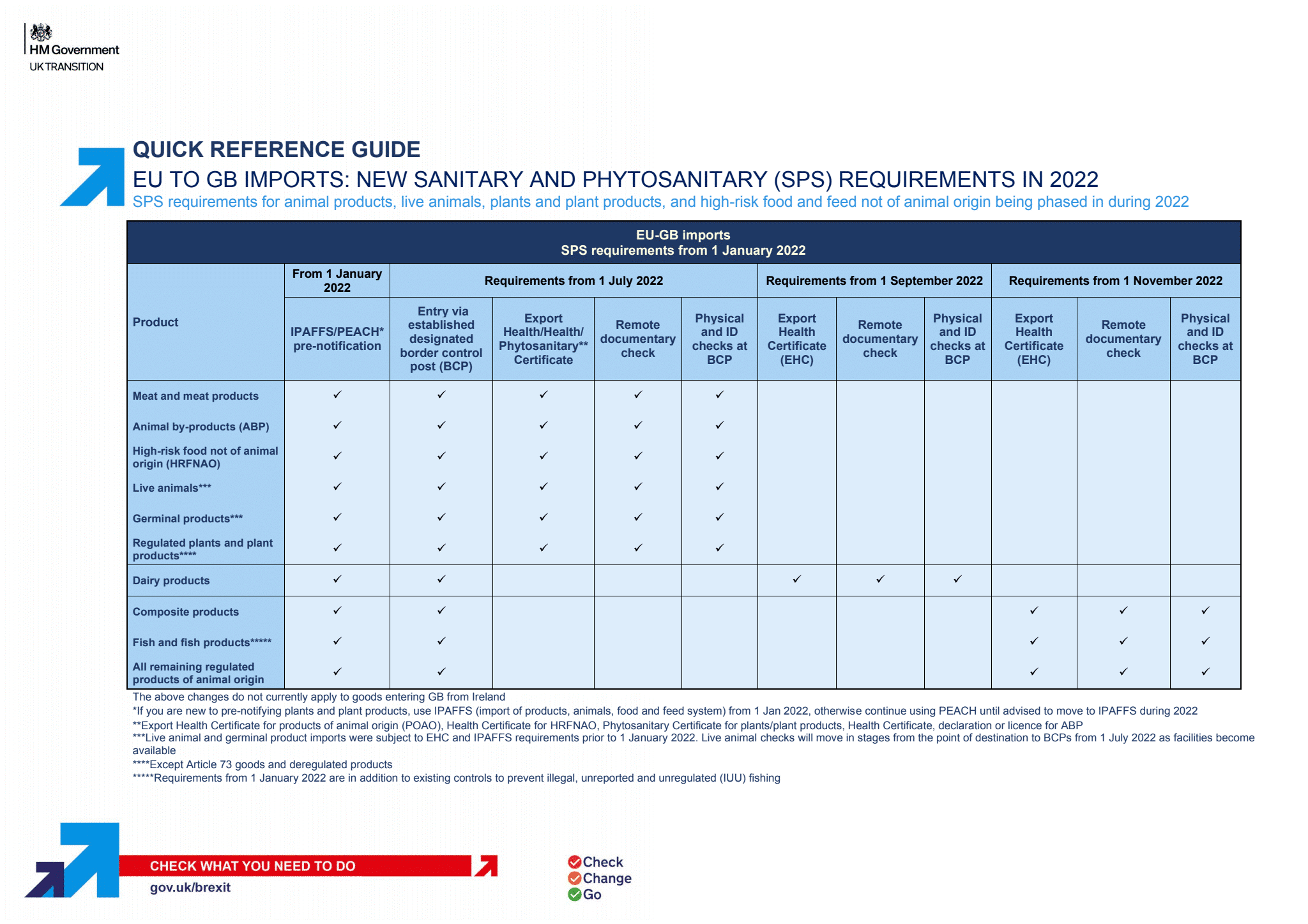From July 2022, Stage Three Import Controls will come into place, affecting the processes and documentation required when importing goods. These will continue to come into effect over the year. IT IS VERY IMPORTANT YOU ARE AWARE OF THESE CHANGES AND PREPARE ACCORDINGLY. The Import Controls will particularly affect those importing products of animal and plant origin.
Below are changes that are due to come into place.
FROM JULY 2022:
At import:
- All ‘regulated and notifiable’ plant products will require phytosanitary certificates and full CHED requirements (IPAFFS).
- All ‘regulated’ plant products require a phytosanitary certificate, but do not require IPAFFS.
- All regulated animal by-products, meat products, and any remaining high-risk food not of animal origin will require Export Health Certificates and full CHED requirements (IPAFFS).
- Dairy products will require this from September 2022.
- All remaining products of animal origin, including composite and fish products, will require this from November 2022.
Other key changes:
- All animal products, ‘regulated and notifiable’ and ‘regulated’ plant products will be required to enter the UK at a location with a Border Control Post (BCP) designated to deal with them.
- Document, Identity, and Physical checks will also begin to take place at the BCPs.
- Safety and Security (S&S) Declarations will be required.
- For accompanied movements, this is the responsibility of the haulier.
- For unaccompanied movements, this is the responsibility of the carrier.
Prohibited goods:
From July 2022, the extension that allows the import of prohibited and restricted foods, from the EU, is currently set to expire.
This means from July 2022, you will NOT be able to import:
- Chilled minced meat (of beef, pork, lamb, mutton and goat)
- Chilled or frozen minced poultry meat
- Mechanically separated meat from pigs, poultry, ratite or game birds
- Ungraded eggs
- Chilled ‘meat preparations’
Other things to consider:
- All frozen ‘meat preparations’ must be frozen to an internal temperature of -18 °C or below.
- Examples of ‘meat preparations’ would be raw sausages, hamburgers, seasoned chicken breasts or chicken nuggets.
Defra (Department for Environment, Food and Rural Affairs) have published a very useful reference guide for Import Controls, shown below, which displays a good breakdown as to what is required over the next few months:
How can we assist you?
Good Logistics’ knowledgeable and experienced EU Customs team have a wealth of experience handling imports. We understand changes to Import Controls can be tricky to navigate, so we are here to help assist you with these new requirements.
Contact us if you require assistance:
EUsupport@goodlogisticsgroup.com

